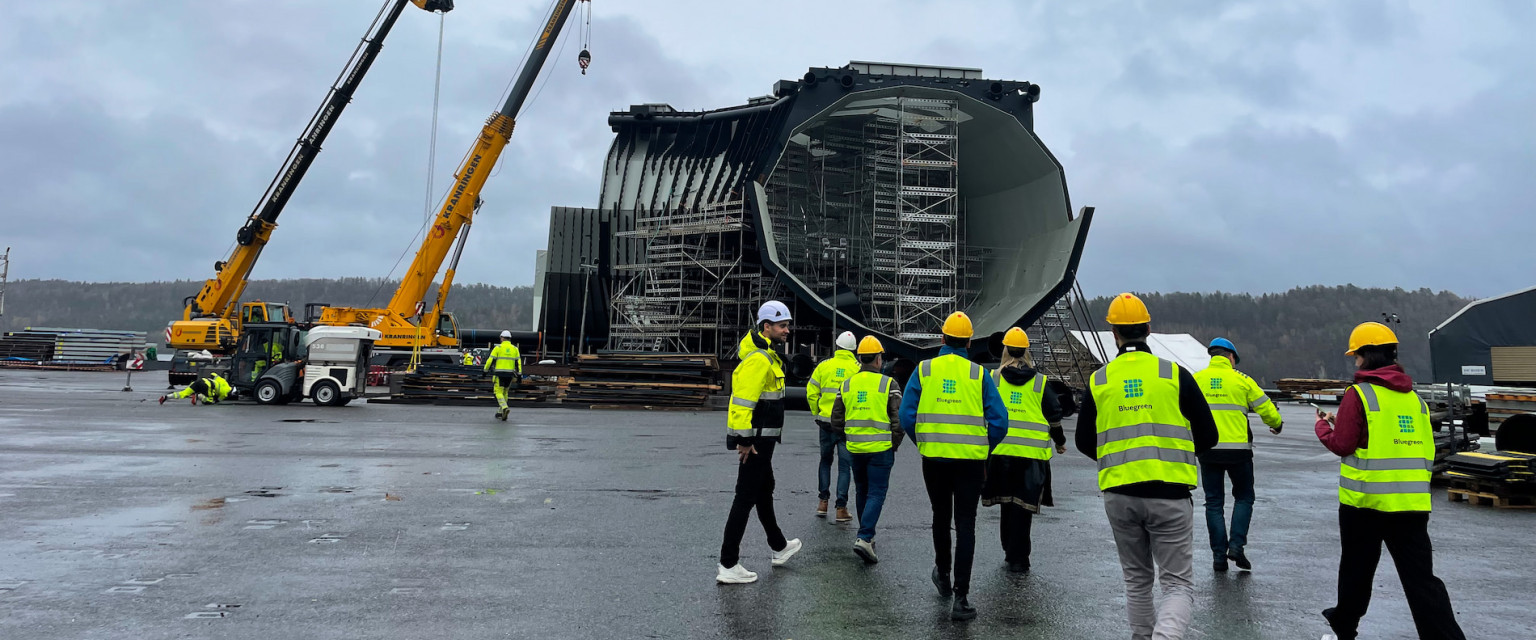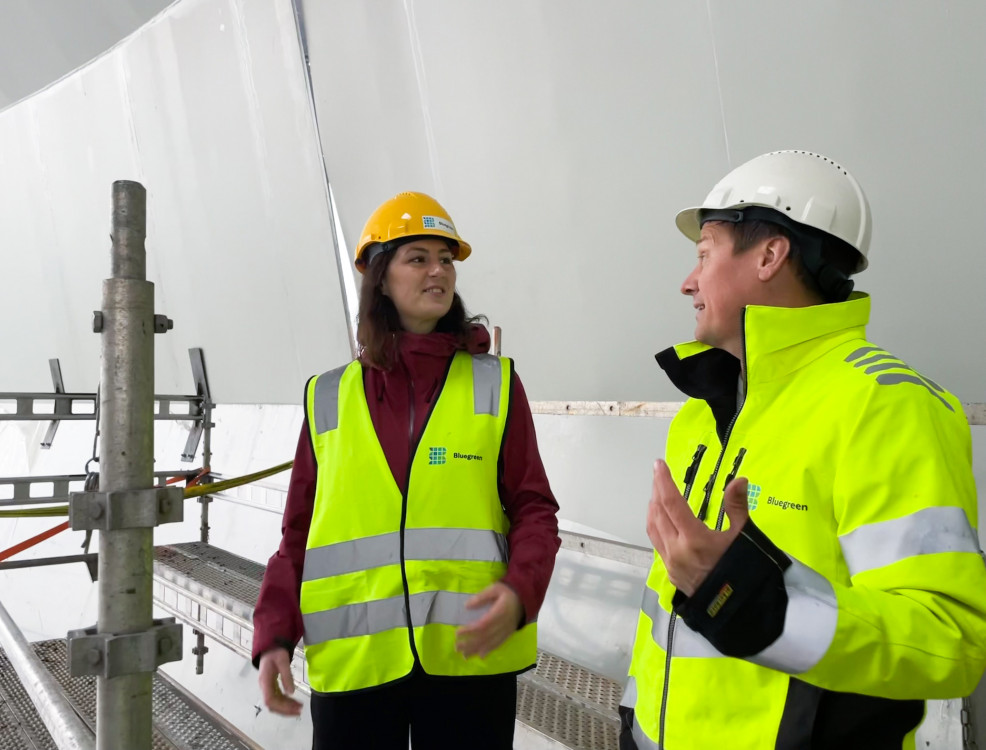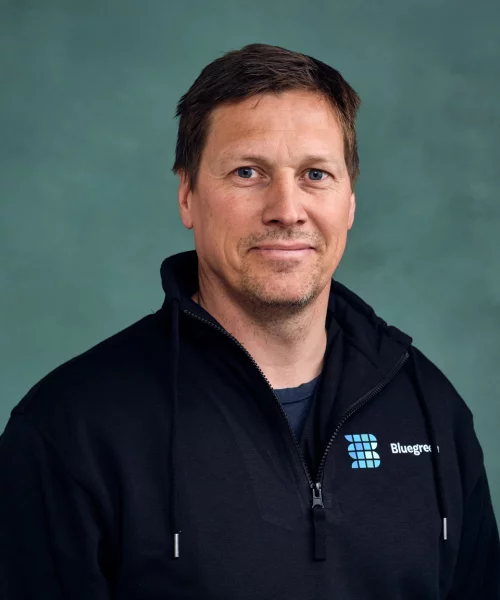Salmon lice, escapes and access to area are among the challenges the Directorate of Fisheries sees within the aquaculture industry at present. The system of development permits will help to solve these challenges. The Directorate of Fisheries is pleased that the Marine Donut concept is now being realized.

Live Finserås and Lene Røyrane-Løtvedt, senior advisers in the Directorate of Fisheries, were recently on a visit to inspect the construction of the huge closed-containment fish farm, and were impressed by what they saw.
"Marine Donut as a closed facility with a double security barrier at both the intake and discharge points will have a lower probability of escape, compared to today's conventional facilities," explains Røyrane-Løtvedt.
The senior advisor also highlights the benefits of reducing salmon lice:
"When the facility received the development permit, we assessed that the closed facility constitutes a barrier against infection by salmon lice, viruses and bacteria, and that intake of water from greater water depths can help reduce the introduction of salmon lice into the facility."
See feature: Norwegian National Broadcasting reports on Marine Donut
There are stated political ambitions for continued growth in the aquaculture industry. The Norwegian Labour Party program states that the party wants to "Double the value creation from aquaculture by 2030". In addition, the government has a target to increase exports by 50 per cent by 2030, excluding oil and gas.
"In order to achieve this goal, the seafood industries must contribute heavily," writes the Minister of Fisheries and Oceans in a statement to IntraFish on 22 September.
The Directorate of Fisheries points to offshore aquaculture and closed fish farms at sea as two interesting tracks:
"Development permits were granted for several projects that were suitable for exposed locations, and an impact assessment was recently opened for three areas for offshore aquaculture. Furthermore, we see that a development is taking place, among other things, when it comes to closed facilities at sea, such as Marine Donut," says Røyrane-Løtvedt.
The purpose of the development permit scheme was to develop new technology that could contribute to solving one or more of the environmental and area challenges facing the aquaculture industry.
"Our impression is that the development permit-scheme has contributed to the aquaculture industry forming closer ties with technological environments," says Røyrane-Løtvedt, and adds that they are looking forward to following developments in the Donut project.
"It is a prerequisite that knowledge and experience from the development permit projects must be shared with the industry and be easily accessible," she concludes.
Read more: SalMar signs contracts the Marine Donut
Nils-Johan Tufte, managing director and partner in Bluegreen - and not least the creator of Marine Donut - proudly leads the tour of the Donut construction area.
"The environmental challenges are big and real, and must be addressed. But in order to succeed in the long term, the farm must also be financially sustainable, and secure a competitive price for the fish. I believe that Marine Donut has all the prerequisites to be able to deliver on this."

